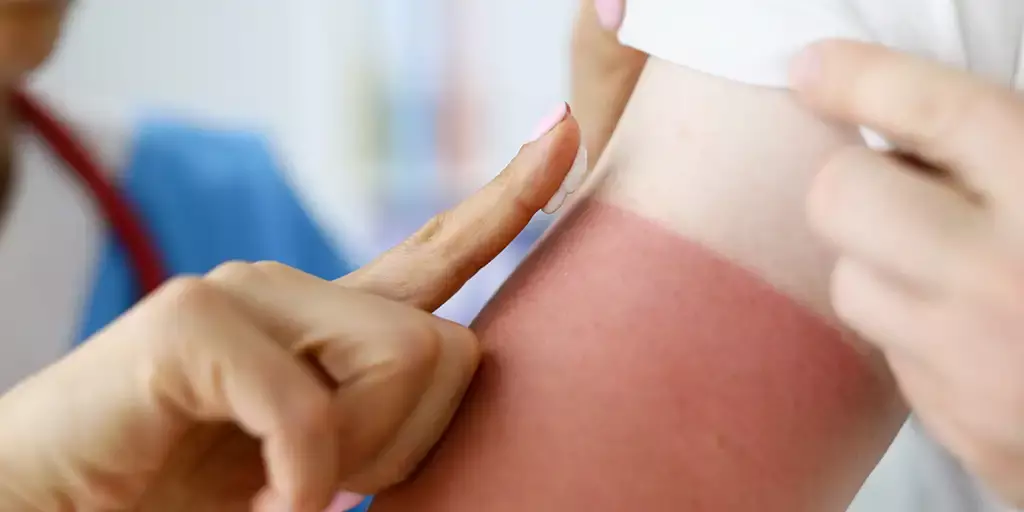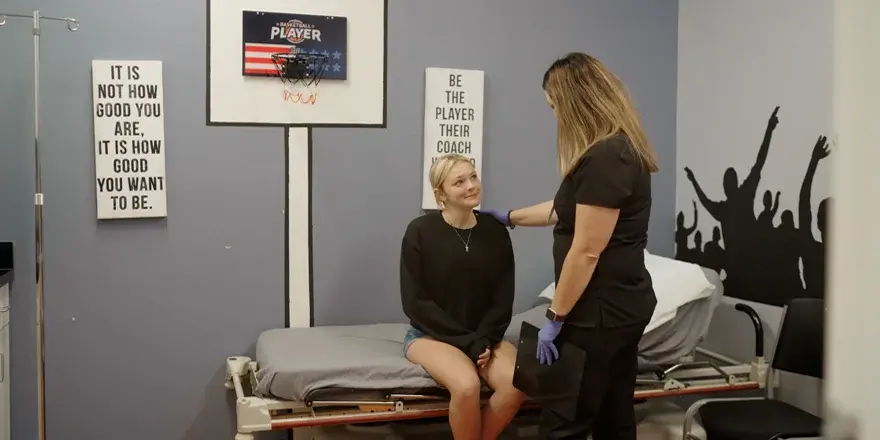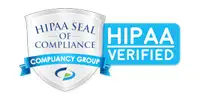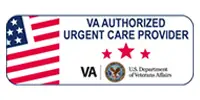
Summer brings with it the promise of long days, outdoor activities, and plenty of sunshine. While soaking up the sun can be relaxing and beneficial for our vitamin D levels, too much exposure can lead to sunburn – a painful condition that can cause long-term skin damage and increase the risk of skin cancer. To help you enjoy the sun safely, here are our top tips for preventing and treating sunburns.
Preventing Sunburn
Preventing sunburns is easier and safer than treating skin that has already had too much sun exposure. There are several safe and effective ways to prevent UV rays from damaging your skin, as well as factors that increase your risk of sunburn. So, before you venture out for your next day in the sun, take these precautions or make the necessary adjustments.
Choose the Right Sunscreen
One of the most effective ways to prevent sunburn is by applying sunscreen. When choosing a sunscreen, look for a broad-spectrum product that protects against both UVA and UVB rays. Aim for an SPF of at least 30, which blocks 97% of UVB rays. Remember to apply sunscreen generously to any exposed skin at least 15 minutes before going out in the sun, and reapply every two hours, or more if you’re swimming or sweating.
Wear Protective Clothing
Clothing can provide an extra layer of protection against the sun’s harmful rays. Opt for long-sleeved shirts, pants, and wide-brimmed hats to shield your skin. Look for clothing made with tightly woven fabrics specifically designed with UV protection. Sunglasses with UV protection are also essential to protect your eyes from sun damage.
Seek Shade During Peak Hours
For most areas, the sun’s rays are the strongest between 10am and 4pm. During these hours, try to limit your direct sun exposure by staying in the shade. If you’re at the beach, park, or other open spaces, bring a large umbrella or portable canopy to create your own shaded area. Even on cloudy days, up to 80% of UV rays can penetrate through the clouds, so protection is still necessary.
Be Cautious Near Reflective Surfaces
Surfaces like concrete, water, sand, and even snow can reflect UV rays, further increasing your risk of sunburn. Be extra cautious and vigilant in these environments, and consider using sunscreen with a higher SPF. Take frequent breaks in the shade, and monitor your skin for any pink or red hues that don’t improve while in cooler areas.
Be Mindful of Medications
Some medications can increase your sensitivity to sunlight and the likelihood of getting sunburned. Check the labels of any medications you’re taking, and consult your healthcare provider if you have concerns about sun sensitivity. Some common medications that increase your sensitivity to sunlight include:
- Antibiotics
- Antifungals
- Antihistamines
- Cholesterol-lowering drugs (statins)
- Diuretics
- Nonsteroidal anti-inflammatory drugs (NSAIDs)
- Oral contraceptives and estrogens
- Retinoids
Other medicated or non-medicated ointments, creams, and body scrubs can also make your skin more sensitive to the sun. Some additives in cosmetics can also affect how your skin responds when exposed to UV rays.
Treating Sunburn
Despite your best efforts, sunburns can still happen. Sunburns are uncomfortable, but are usually able to be treated at home with over-the-counter (OTC) remedies, rehydration, and rest. Here are some tips for recovering from a sunburn, and when medical attention may be necessary.
Take Swift Action
As soon as you notice signs of sunburn, such as redness or painful skin, get out of the sun to prevent further damage. The quicker you can cool your skin and begin treating your sunburn, the better.
Cool the Skin
Take a cool bath or shower to soothe a sunburn. Avoid using soaps, which can further irritate the skin, and gently pat dry rather than rub. Applying cold compresses to the affected area can also provide a measure of relief.
Moisturize
After the skin is cooled, apply a moisturizer to help prevent dryness. Choose products that contain aloe vera or soy, both of which can soothe sunburned skin. Avoid using creams or lotions containing alcohol, added fragrances, or exfoliating elements.
Stay Hydrated
Sunburns draw fluid to the skin’s surface and away from the rest of the body, so it’s important to drink plenty of water to stay hydrated. Preventing dehydration will support your skin’s recovery, as well as replenish fluid lost through the outdoor activity that caused the sunburn.
Take Pain Relievers if Needed
If you’re experiencing discomfort, OTC pain relievers like ibuprofen or aspirin can help reduce pain and inflammation. Follow the recommended dosage on the label, and consult with a healthcare provider if you have questions or concerns.
Avoid Further Sun Exposure
Until your sunburn heals, typically within a week depending on the severity, you’ll need to stay out of the sun. If it’s necessary for you to be in the sun during your recovery, wear protective clothing over sunburned skin, along with sunscreen on exposed areas. Stay indoors as much as possible, as sweat can further irritate sunburns or exacerbate blistering.
When to Seek Medical Care
If you experience severe symptoms with your sunburn, seek urgent care. The following symptoms are signs of a severe sunburn, or sun poisoning, an extreme form of sunburn:
- Blistering
- Fever
- Chills
- Headache
- Nausea
- Dehydration
Fast Relief with Xpress Wellness Urgent Care
If you or a loved one experiences a painful sunburn, don’t delay treatment. Find an Xpress Wellness Urgent Care location near you to find relief from sun-related illness or injury. We treat a variety of illnesses and injuries, and offer virtual visits for most ailments that can be conducted from the comfort of your home. Our caring and skilled healthcare providers can help you feel better after a sunburn, and share techniques on how to avoid them in the future so that you can get back to enjoying the rest of your summer, sunburn-free.





